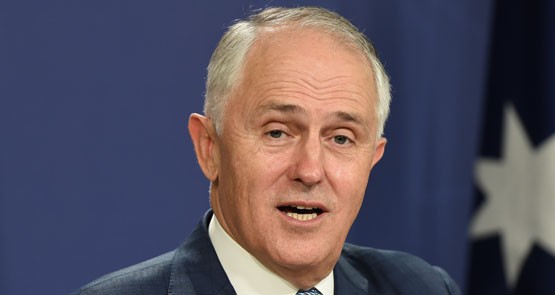
While Labor spent Saturday unveiling one of the bolder moments in economic policy in recent decades, Malcolm Turnbull was engaged in the alchemy of trying to turn a reshuffle caused by scandals into a triumph of rejuvenation and renewal.
There’s undoubtedly some deft footwork in the Prime Minister’s new ministry. With Angus Taylor and Connie Fierravanti-Wells, he’s sent both the moderates and the right in the NSW Liberals — the aggressors and defenders, respectively in the current civil war there — a signal that he wants stability rather than infighting, and doesn’t mind supporting right-aligned MPs if that’s what’s required. It recalls a similar intervention by John Howard when that prime minister told the party room he wanted right-wing manouevring to oust NSW moderate Marise Payne from the Liberal Senate ticket to stop (Howard also sicced Bill Heffernan onto the preselection process to keep her).
There are also some good promotions. If you’re going to promote a Nationals MP, Darren Chester is the best candidate. Intelligent, in touch with the views of the wider electorate, willing to voice inconvenient opinions (he called for people attacking Julia Gillard to lay off personal abuse), he’s the least worst National to be running the important Infrastructure and Transport portfolio. Scott Ryan gets the important vocational training and skills portfolio and has his work cut out to fix the serious problems in that sector, but it should be a stepping stone to bigger things. And the well-regarded young James McGrath moves out of Turnbull’s immediate orbit and into Immigration, where he might out-shine his dullard portfolio minister.
And, fortunately for the government and the country as a whole, Barnaby Joyce has opted to remain in the backwater of agriculture, where he can pursue his 1950s fantasies of a small, (heterosexual) family-run, Nationals-voting farming sector without damaging too many other industries.
But other aspects are problematic. Fiona Nash, the first female deputy leader of the Nats, has a cobbled-together portfolio made up of Regional Development — now separated from Transport and Infrastructure again, but apparently the department will remain together — as well as Rural Health, under Sussan Ley, and Regional Communications, under Mitch Fifield, meaning she has three separate departments reporting to her. The bold Turnbull initiative of having a minister for cities has been downgraded to an assistant minister within his own portfolio to cover both cities and digital transformation. And that’s Taylor’s job, despite Taylor having a rural background, a mostly rural seat and a career background in agribusiness.
And Finance Minister Mathias Cormann now permanently has the Special Minister of State gig he’s had since Mal Brough stepped aside. Doubtless that will change after the election, which Cormann is presumably trying to pave the way for by building a Senate majority for the government’s Senate voting reforms, but it’s a political version of that awful Australian Public Service tendency to punish the competent by piling more work on them.
And bear in mind that while Stuart Robert’s trip to China happened under Tony Abbott, Mal Brough’s resignation was entirely an event of Turnbull’s own creation, after he rewarded the under-investigation Queenslander for his successful undermining of Abbott by giving him (of all portfolios) Special Minister of State. Less than six months after becoming Prime Minister, Turnbull is now in the dangerous position that any more ministerial departures or resignations will leave his government looking an utter shambles.








Now he’s “Tommy Cooper”?
“but it’s a political version of that awful Australian Public Service tendency to punish the competent by piling more work on them.”
Ha. So true. Probably true in the corporate world just as much.
Malffle has no policies
It’s still the MT Party.
Fiona Nash is surely a mistake after her dismantling of Gillard’s food website stuff up. She is a fool in my book.